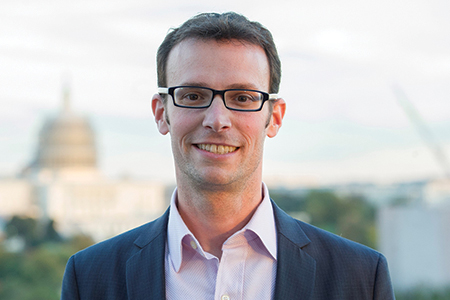Embrace Your Inner Diva: Institutionalizing Patient-Centric Innovation
By Eric Stone
 I’m a diva. No, not that kind of diva … a difficult venous access patient … or DVA.
I’m a diva. No, not that kind of diva … a difficult venous access patient … or DVA.
Diagnosed as a teenager with Crohn’s disease, I spent 12 days and nights in a hospital bed, fed from tubes and incessantly poked by needles. As a result, I developed trypanophobia, or a clinical fear of needles.
Today, I continue to exhibit that lifelong fear whenever I need to have outpatient labs drawn or I’m stuck in what feels like a vampire-esque “shishkabobbing” as an inpatient during a Crohn’s flare. I readily admit that I’m a “tough stick” in hospital parlance (and my caregivers tell me that there is nothing easy about my demeanor when I’m sick).
Inspired by both my chronic disease diagnosis and my fear of needles, I set out to shape a career in which I could help others to heal. This led to a number of posts at health tech and medtech companies. I also became actively involved with the Crohn’s and Colitis Foundation, today serving as a National Trustee and a committed patient advocate.
But alongside my healthcare volunteer and vocational endeavors, I always yearned for an opportunity to upend the suboptimal attributes of my childhood care experience. Approximately 1.5 billion blood draws occur in hospitals globally every year. And I know I’m not alone in my fear of needles.
In fact, studies estimate that nearly 30 percent of all patients worldwide are DVA for reasons related to age, disease, or obesity. When you consider that blood draws inform nearly 70 percent of all medical decisions, this is clearly more than a patient issue — it’s one of medical accuracy and sustainability.
ADDRESS THE PROBLEM FROM A PATIENT’S PERSPECTIVE
My journey to combine a personal passion with my career led me to cofound a medical technology company transforming vascular access for patients and hospitals. I teamed up with a physician inventor and fellow serial entrepreneur, and just a few years later, we’d already touched hundreds of thousands of lives in a few dozen hospitals around the country.
One pillar of our approach has been our unwavering commitment to address the problem from a patient’s perspective. For other innovators in healthcare, a similar commitment to human-centered design and elevation of the human experience (both for patients and practitioners) is critical to sustainability. Patients and their family members/caregivers are consumers, and their opinions matter to health systems, leaders, and at the bedside. Ignore them at your peril.
Ethnography, and the “Jobs Theory” of work, can be a steering influence in this work. Track your constituents’ experiences throughout their hospital stay as they encounter your products — especially in relation to the prior status quo.
For us, that means our team and cameras are there at 2 a.m. when the phlebotomy cart rolls into the room so we can capture precise emotions, observations, and feedback. We speak to their caregivers and family members in the care setting — not in conference rooms. And we share these observations with our hospital partners so they gain the insights that help them know where to look.
Such real-world learnings are what drive continued innovation in any organization. Through this engagement, progress becomes informed by first-hand patient observations and outcomes.
It is important to institutionalize processes that provide this wider lens into the patient-centric experience. Commit to observing your patients in the clinical setting, and engage with them (and their families/caregivers and practitioners) consistently over time — all along their medical journey. Through observations and caring, trust can be established which ultimately could lead to groundbreaking innovation and long overdue disruption. Don’t be a (traditional) diva and assume that just because medicine has been practiced a particular way for decades, it’s the best way to help healing.
ERIC STONE is CEO and cofounder of Velano Vascular. A patient advocate and serial healthcare entrepreneur, Stone is a National Trustee of the Crohn’s and Colitis Foundation.
